AI Act and Interoperability+++Router Freedom Survey+++Podcasts, YH4F & Ada
The June issue brings updates on the Interoperable Europe Act and
the AI Regulation, and the publication of the conclusions of our
European Router Freedom survey. We were invited to two podcast episodes
and were the focus of Edri's 'Member of the spotlight'. Check out a
study on net neutrality regulation and read a lovely story about Ada
arriving in rural India.
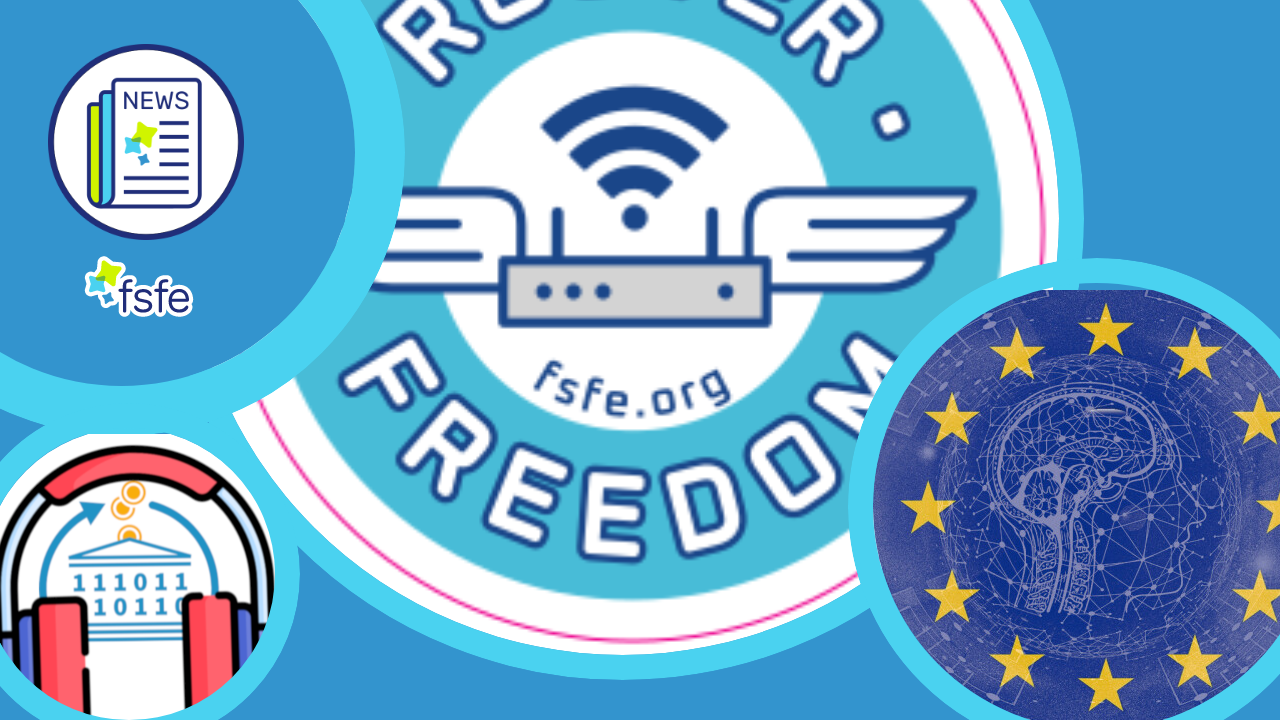
Table of contents
- EU Policy: Interoperable Europe Act
- EU Parliament wants to protect Free Software in AI regulation
- Survey: European citizens demand Router Freedom
- Router Freedom as priority for the future of Net Neutrality regulation
- Making the telecom sector more sustainable with Free Software
- Two podcast episodes to listen to
- 'Youth Hacking 4 Freedom' projects
- ‘Ada & Zangemann' travels to rural Rajasthan
- EDRI’s Member in the Spotlight
- Chaos Communication Camp and more events
- Get Involved - Join our local groups!
- Quote of the month
- Follow us in the Fediverse... and elsewhere
- Contribute to our Newsletter
EU Policy:
InteroperableEurope Act
In May, the Committee of the Regions
failed to recognise the importance that Free Software has for
interoperability and thus for digitalisation and innovation while the
European Parliament's responsible committees voted by a large majority
to protect Free Software in the AI regulation. The Committee of the
Regions adopted its opinion on interoperability through the
Interoperable Europe Act, failing to substantially improve the original
text and bring up more solid and necessary measures on the role of Free
Software, forgetting a ’Free Software first’ approach.
Read more about this
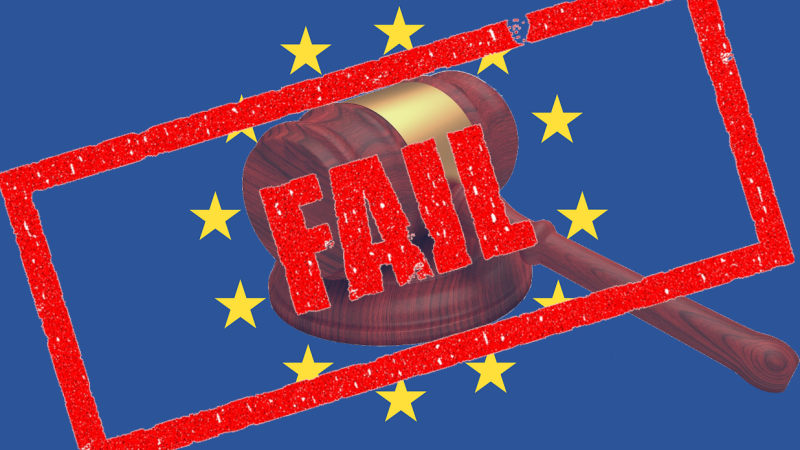
EU Parliament wants to protect Free Software in AI regulation
The European Parliament's lead committees on AI legislation, the
Committee on Internal Market and Consumer Protection (IMCO) and the
Committee on Civil Liberties, Justice and Home Affairs (LIBE), voted by
a large majority in favour of protecting Free Software in the AI
Regulation. Non-profit organisations and small Free Software projects
up to the size of micro-enterprises will be largely exempted from this
regulation.
Read more about this
Survey:
European citizens demand Router Freedom
In the most comprehensive survey to
date, end-users from all over Europe shared their experience about
ISPs’ commercial practices regarding terminal equipment and how Router
Freedom is affected. The responses have highlighted several obstacles
to Router Freedom, such as lack of freedom of choice, provider lock-in
and promotion of equipment running exclusively proprietary software.
Read more about it
Router
Freedom as priority for the future of Net Neutrality regulation
The EU Commission has published a study
on the future of Net Neutrality regulation, confirming Router
Freedom as a priority for the future implementation of Open Internet in
Europe. (Recommendation 2, p. 91). The study referred to work done by
the FSFE (p.11), supporting the conclusions we at the FSFE have been
advocating in recent years. In particular, national regulators should
prioritize end-users’ rights and safeguard freedom of terminal
equipment for all network types, including fiber (FTTH).
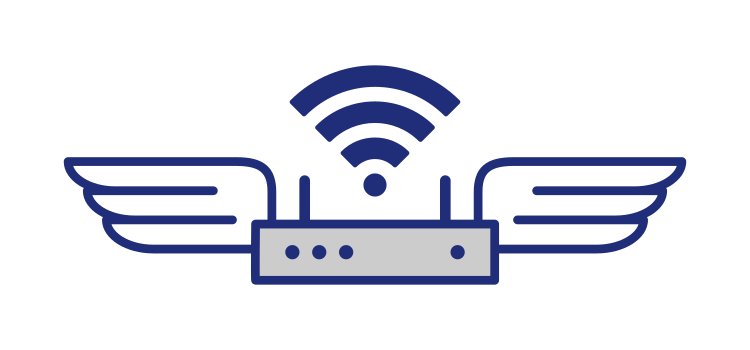
Making the telecom sector more sustainable with Free Software
As part of the book ‘Shaping Digital Transformation for a sustainable
society’, that puts together 28 contributions from the second Bits &
Bäume conference on digitization and sustainability, Lucas Lasota and
Erik Albers explain how Free Software is key for a more sustainable
telecom sector by empowering end-users to have more control over
devices, especially regarding software and hardware artificial
obsolescence.
Two podcast episodes to
listen to
-
Learn about the Public Money, Public Code!
Initiative. Johannes Näder was invited to explain it and why Free
Software is important for our digital sovereignty at the eGovernment
Podcast.
🎧 Listen to it
-
In ’Episode 510: Thinking in Decades’ of the LinuxUnplugged
podcast, Matthias Kirschner talks about Free Software, the FSFE and
the ‘Ada & Zangemann’ book.
🎧Listen to it
'Youth Hacking 4 Freedom'
projects
The second edition of the Youth Hacking 4 Freedom
contest is in its last weeks. We cannot wait to see what the
participants have developed. Meanwhile, this month we talk with Konrad, who created a learning platform for the amateur radio service
exam.
Check out the rest of the
projects from the first edition. Want to know more about this cool
competition? Watch Bonnie Mehring explaining it in German at LIT 2023
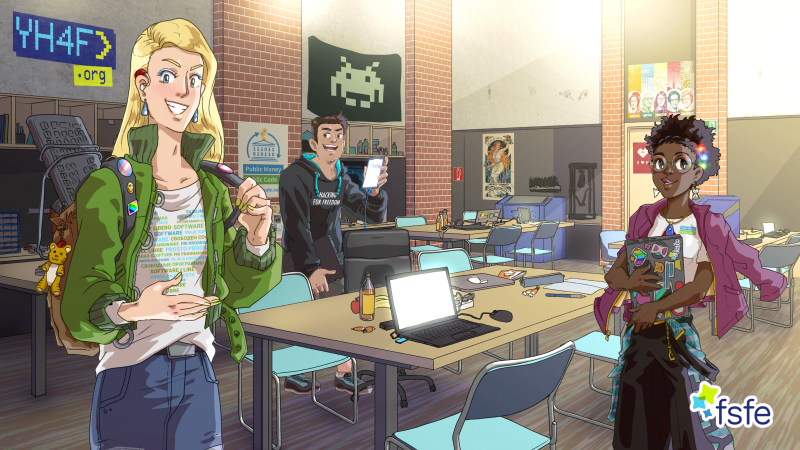
'Ada & Zangemann’ travels to rural Rajasthan
The story 'Ada & Zangemann'
has travelled from LibrePlanet in Boston to India! Check out this blog
post explaining a
storytelling session about software and ice cream in rural
Rajasthan.
Get your own copy in German, online or at your
favourite book store. The English version is currently available in the
US from the publisher and at the FSF online store and can be
pre-ordered in the rest of the world.
'EDRI’s Member in the
Spotlight interview
Since 2018 the FSFE has been part of the EDRi, the European network defending rights and freedoms online. In
their May newsletter we had the chance to present ourselves and our work. Read the interview.
Chaos Communication Camp and more events
Come and camp with us in the Chaos Communication Camp, from 15 to 19 August 2023. The Free Software Foundation Europe is part of this year's 'Bits & Bäume' village. And if you're interested in applying, please submit your talk or workshop proposal to the official Call for Participation by June 9.
Over 180 participants had the opportunity to learn about and discuss
Free Software in more than 20 sessions during the last edition of
FOSS-North. In case you missed the event, here is a short overview of some of the topics that were discussed
Our team and our community participate in many Free Software events. Check our events
page to be up to date about what is going on. Subscribe to our feeds to
stay current about events and do not forget to sign up for our local
group and country mailings to receive updates about what is going on in
your region.
'Get Involved - Join our local groups!
Connect with our community by joining the local group meetings! Our
community is organised in local groups, country teams, and thematic
groups. Some of these are casual and have ongoing discussions in chats.
Others are task-oriented and plan their own campaigns. Some meet
face-to-face and others meet online. Whether you are a long-time Free
Software enthusiast or a newcomer, our groups are waiting for you!
Quote of the Month
"I believe that Free Software can help us change our society
fundamentally for the better and I believe the best way to do so is
together with other volunteers from all over Europe!
Alexandra Busch, IT specialist
Follow us in the Fediverse… and elsewhere
We want to reach to our whole society and get our messages and
demands heard by those who are not part of the Free Software Community.
That is why you can find us both in federated and decentralized social
networks but also in proprietary ones. You can find us in Mastodon and
Twitter, in LinkedIn and in PeerTube and Youtube. In this last one we
have reached 1000 followers, hopefully helping people to learn more about software freedom who have not heard about it before.
Contribute to our Newsletter
We would love to hear from you. If you have any thoughts, pictures,
or news to share, please send them to us at newsletter@fsfe.org. You
can also support
us, contribute to our
work, and join our community. We
would like to thank our community and all the volunteers, supporters,
and donors who make our work possible, with a special mention to our
translators who make it possible for you to read this newsletter in
your mother tongue.
Your editor, Ana Galán
Support FSFE
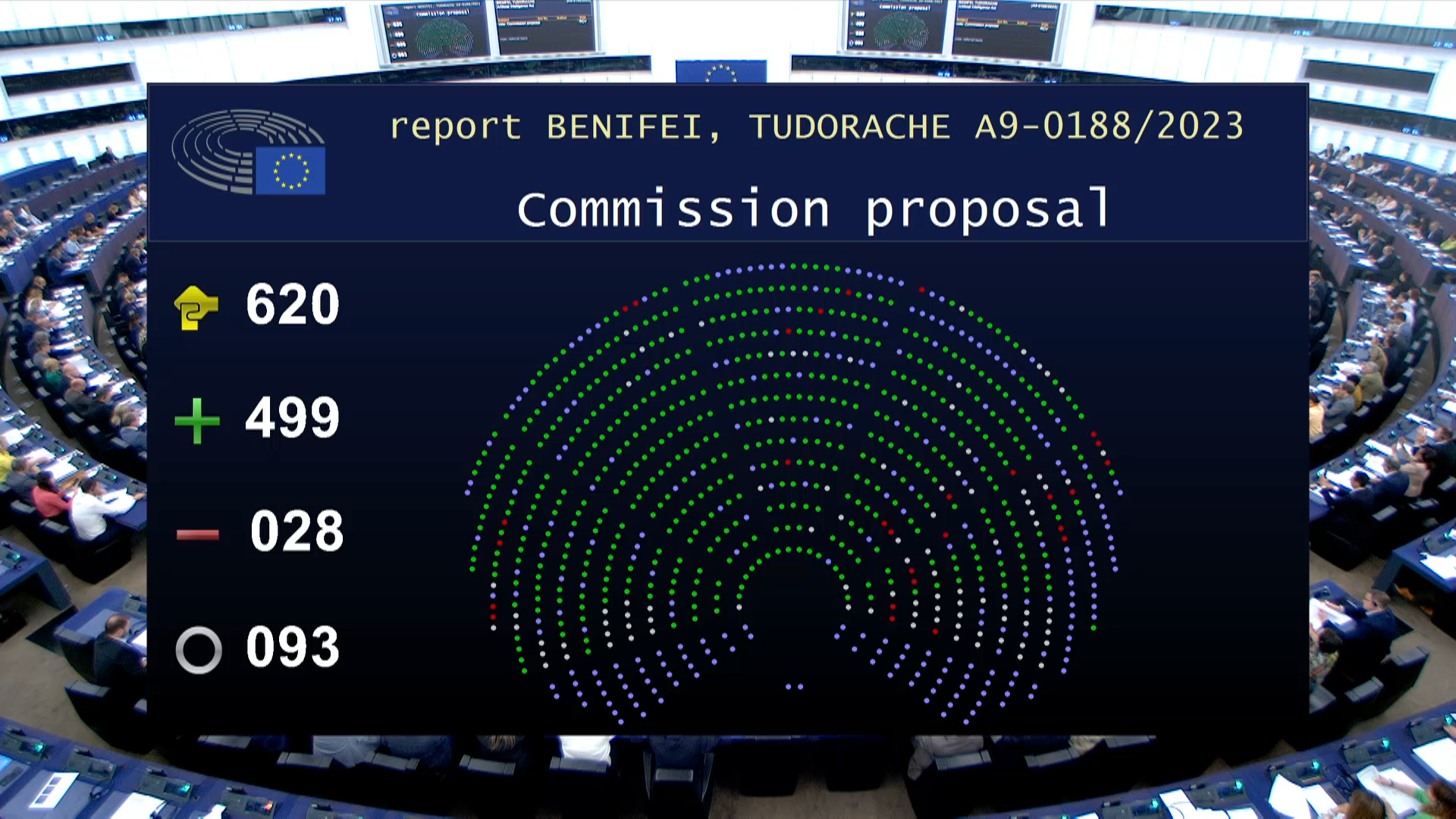




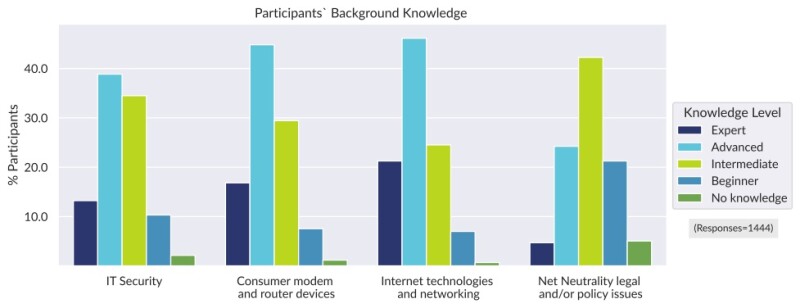 This chart illustrates the participants’ background knowledge on topics related to Router Freedom
This chart illustrates the participants’ background knowledge on topics related to Router Freedom
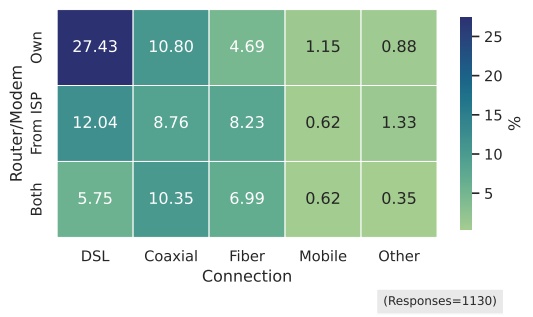 In this chart of types of connection and router usage can be seen that, although the majority of DSL subscribers use their own routers, those on fiber and coaxial connections are still dependent on ISPs’ equipment
In this chart of types of connection and router usage can be seen that, although the majority of DSL subscribers use their own routers, those on fiber and coaxial connections are still dependent on ISPs’ equipment
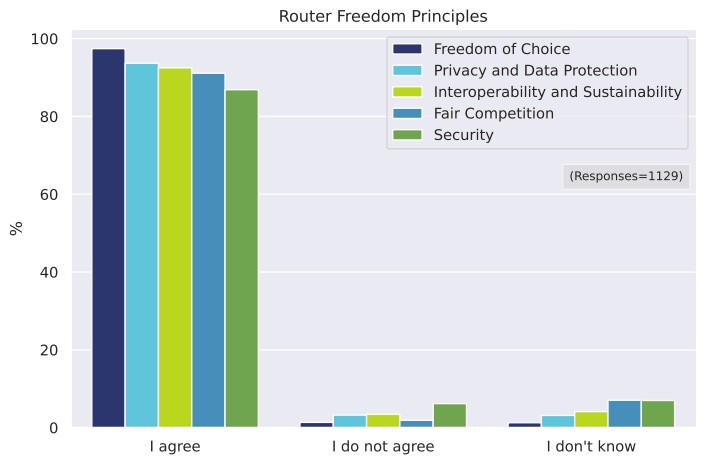 This chart demonstrates the participants’ level of agreement on Router Freedom principles. More than a simple technical issue, Router Freedom is a policy demand
This chart demonstrates the participants’ level of agreement on Router Freedom principles. More than a simple technical issue, Router Freedom is a policy demand